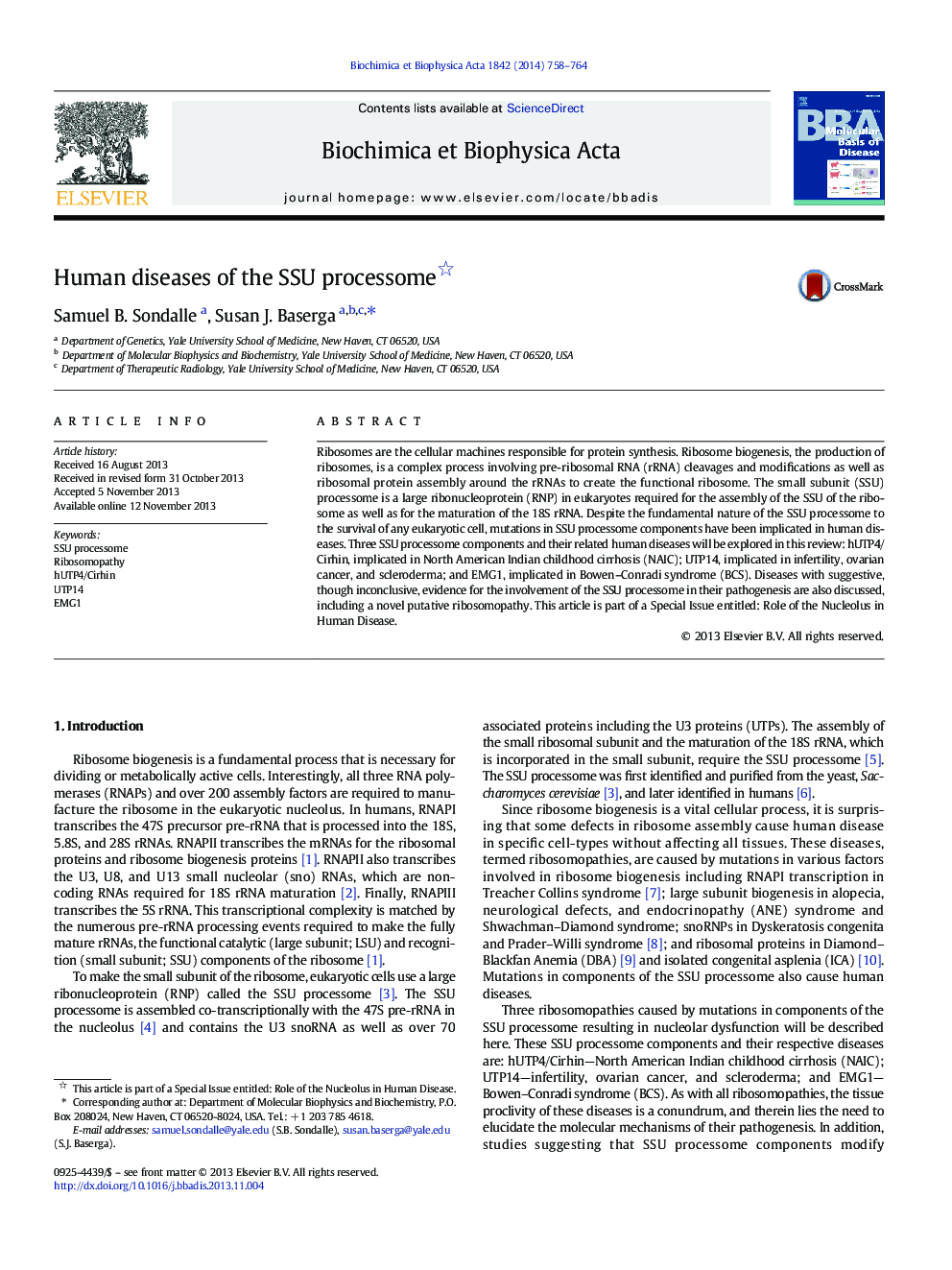| Article ID | Journal | Published Year | Pages | File Type |
|---|---|---|---|---|
| 1904760 | Biochimica et Biophysica Acta (BBA) - Molecular Basis of Disease | 2014 | 7 Pages |
•The small subunit (SSU) processome is a large ribonucleoprotein responsible for the maturation of the 18S rRNA.•Mutations in components of the SSU processome cause ribosomopathies.•North American Indian childhood cirrhosis is caused by a missense mutation in human UTP4/Cirhin.•Infertility can be caused by truncations of human UTP14c, an SSU processome component specific to developing male germ cells.•A missense mutation in EMG1 causes Bowen–Conradi syndrome.
Ribosomes are the cellular machines responsible for protein synthesis. Ribosome biogenesis, the production of ribosomes, is a complex process involving pre-ribosomal RNA (rRNA) cleavages and modifications as well as ribosomal protein assembly around the rRNAs to create the functional ribosome. The small subunit (SSU) processome is a large ribonucleoprotein (RNP) in eukaryotes required for the assembly of the SSU of the ribosome as well as for the maturation of the 18S rRNA. Despite the fundamental nature of the SSU processome to the survival of any eukaryotic cell, mutations in SSU processome components have been implicated in human diseases. Three SSU processome components and their related human diseases will be explored in this review: hUTP4/Cirhin, implicated in North American Indian childhood cirrhosis (NAIC); UTP14, implicated in infertility, ovarian cancer, and scleroderma; and EMG1, implicated in Bowen–Conradi syndrome (BCS). Diseases with suggestive, though inconclusive, evidence for the involvement of the SSU processome in their pathogenesis are also discussed, including a novel putative ribosomopathy. This article is part of a Special Issue entitled: Role of the Nucleolus in Human Disease.
